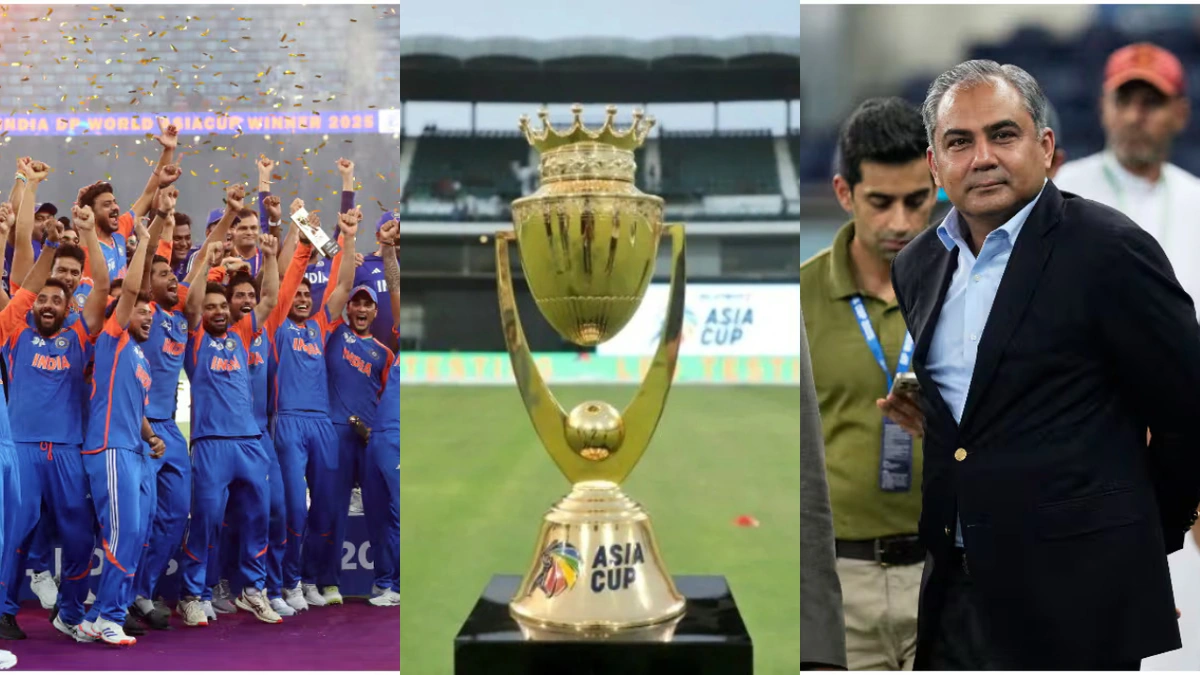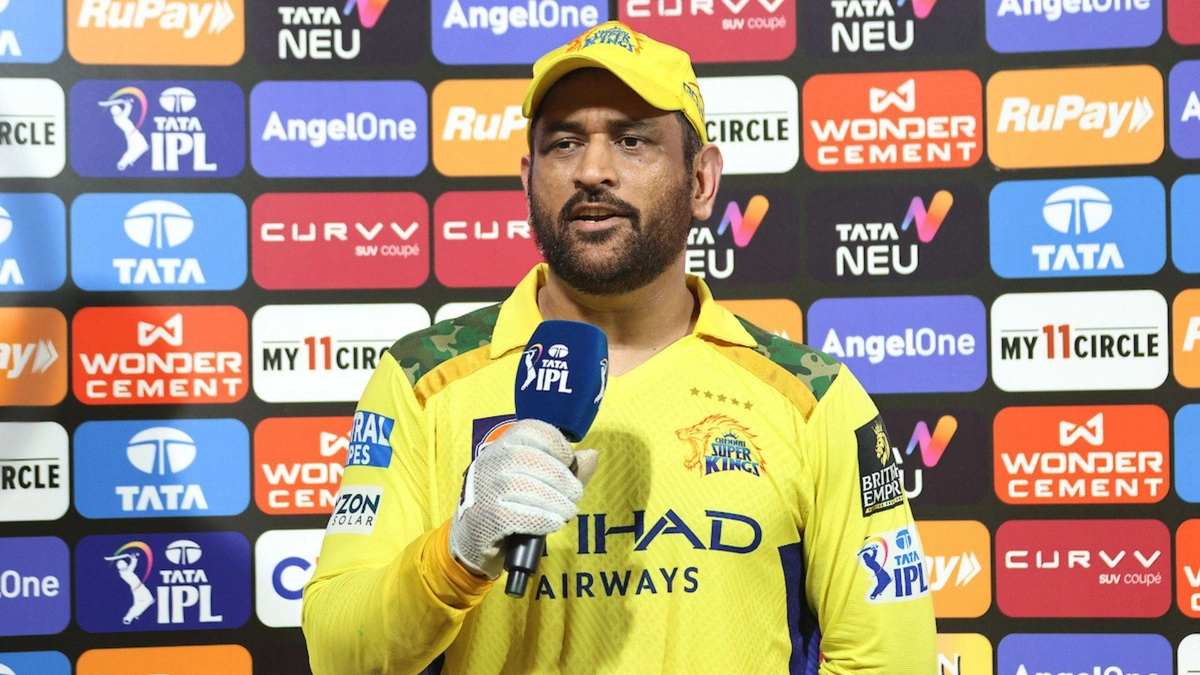Mohsin Naqvi’s Controversial Move | Locks Asia Cup Trophy in Dubai Office, Stoking India-Pakistan Rivalry
Alright, let’s be honest, the Asia Cup trophy isn’t just a piece of silverware. It’s a symbol. It represents bragging rights, national pride, and, let’s face it, fuel for the never-ending India-Pakistan cricket rivalry. So, when news broke that Mohsin Naqvi, the chairman of the Pakistan Cricket Board (PCB), had reportedly locked the Asia Cup trophy in his Dubai office, it wasn’t just a quirky headline – it was a move that sent ripples through the cricketing world.
But here’s the thing: why did he do it? That’s the question that really matters. Was it a power play? A symbolic gesture? Or just a really, really weird way to keep the trophy safe? Let’s dive into the possible reasons and why this seemingly small act has become such a big deal.
The Security Angle (Or Lack Thereof?)

One of the first theories that popped up was security. Is the PCB implying that the Asia Cup trophy is safer locked away in an office than, say, displayed at the PCB headquarters in Lahore? It feels like there’s some inside baseball happening here. Dubai is a major international hub, so maybe there are concerns about theft or damage during transit. But that explanation feels… flimsy, doesn’t it? After all, countless trophies and artifacts are transported around the world all the time. Surely, there are more conventional ways to ensure the trophy’s safety, like proper insurance and secure display cases.
Perhaps, it’s more about control. Naqvi, recently appointed, might be trying to assert his authority. It’s a visual reminder, “I’m in charge, and the trophy is under my protection.” This is where the Pakistan cricket board politics come into play. New leadership often brings about changes, sometimes subtle, sometimes dramatic. This might be Naqvi’s way of signaling a shift in approach, a new era, with him at the helm.
India-Pakistan | The Undying Rivalry
Ah, the elephant in the room. Any action involving India and Pakistan, especially in cricket, is bound to be interpreted through the lens of their historic rivalry. Locking away the Asia Cup trophy could be seen as a subtle dig at India, especially if Pakistan won the tournament. It’s like saying, “We’ve got the trophy, and you can’t have it!”
The Asia Cup itself is a testament to this rivalry. Every match between the two nations is a high-stakes affair, watched by millions across the globe. The tension, the passion, the sheer weight of expectation – it’s unlike any other sporting contest. So, locking away the trophy adds another layer to this already intense dynamic. It’s a move that’s sure to be dissected and debated by fans on both sides of the border.
Speaking of fans, their reaction has been, predictable, shall we say? Indian fans are likely seeing this as an act of pettiness, while Pakistani fans might view it as a clever strategic move. Either way, it’s guaranteed to generate more buzz and excitement around future encounters.
Mohsin Naqvi’s Message
So, what message is Mohsin Naqvi trying to send? Is it a message to the players, urging them to defend the title with everything they’ve got? Is it a message to the fans, reassuring them that the PCB is doing everything possible to protect Pakistan’s cricketing glory? Or is it, as some suspect, a message to his own colleagues, asserting his dominance within the board?
Here’s the thing: the beauty of such a symbolic act is that it’s open to interpretation. Everyone can project their own meaning onto it. And that’s precisely what makes it so intriguing. It’s a conversation starter, a controversy generator, and a masterclass in understated showmanship.
The incident involving the Asia Cup 2023 win and trophy’s location highlights the importance of cricket governance and how decisions at the administrative level impact the sport’s perception. Proper administration ensures trophies are handled with respect and accessible for celebratory purposes.
The Future of the Trophy (and the Rivalry)
Ultimately, where the Asia Cup trophy ends up isn’t really the point. The point is the story it has created. It’s a reminder that in the world of cricket, and especially in the context of India-Pakistan relations, even the smallest actions can carry immense weight. It highlights the trophy’s significance .
Will the trophy remain locked away in Dubai indefinitely? Probably not. But the memory of this peculiar episode will linger, adding another chapter to the rich and often bizarre history of cricket rivalries. It also showcases how political and administrative decisions often intertwine in the sports world.
And as for the India-Pakistan rivalry? Well, that’s never going away. If anything, this whole saga has just added more fuel to the fire. Get ready for the next chapter – it’s bound to be a cracker. The next time these two teams meet, you can be sure that the stakes – and the emotions – will be even higher.
FAQ Section
Why did Mohsin Naqvi lock the Asia Cup trophy in his office?
The exact reasons are unclear, but theories range from security concerns and asserting authority to sending a message within the PCB and to rival fans.
Is it normal to keep trophies locked away like this?
No, it’s not a common practice. Usually, trophies are displayed at team headquarters or museums, or handled with great care during celebrations.
Will this affect the relationship between India and Pakistan cricket boards?
It’s unlikely to cause any major damage, but it adds a layer of intrigue and banter to an already intense rivalry. There is a lot that impacts https://gotrendingtoday.com/sanju-samson-rajasthan-royals/ such relationships, though.
What if the trophy gets damaged while locked away?
That would be a major embarrassment for the PCB and would likely spark even more controversy. The trophy’s display should be somewhere secure and accessible.
Is the PCB going to release an official statement?
As of now, no official statement has been released. It’s possible they will address the issue if the controversy continues to escalate. Keeping communication lines open is imperative.
Could this have been a publicity stunt?
It’s certainly possible. The move has generated a lot of media attention, and that can be beneficial for the PCB, though it is hard to say at this point. The FA cup for example gets plenty of press without such antics.
The incident around the Asia Cup trophy is more than just about sports administration, it encapsulates the vibrant rivalry and cultural significance of cricket in the subcontinent, a narrative that continues to evolve with each passing event.













